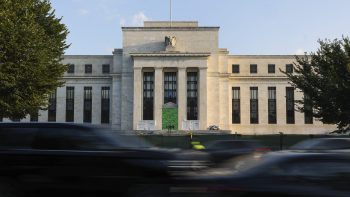TEXT OF COMMENTARY
Kai Ryssdal: The Fed auctioned off another 25 billion dollars in loans this week to U.S. banks. Sliding that kind of cash over to financial institutions has a lot implications — some good, some not so good, — depending on whom you talk to. Commentator Robert Reich says that however you feel about the Fed’s monetary policy, you should have more of say in its decision-making.
Robert Reich: Chinese authoritarian capitalism, on display this week in Beijing, has me thinking about America’s democratic capitalism, and how we practice it.
Start with the economy’s most powerful government agency: The Fed, of course. Its decisions on short-term interest rates will either prolong this recession or pull us out of it. But the Fed is not directly accountable to American voters, or even to Congress or the President.
Months ago, the Fed decided to bail out major investment banks. That put billions of taxpayer dollars at risk, without so much as a single act of Congress. Lately, the Fed has been looking into the capital assets of these banks and telling them how to bolster their liquidity. Probably a good idea, but here again, nobody authorized the Fed to do this.
Now the Fed is issuing proposed regulations governing the credit-card industry. They specify when credit card issuers can increase interest rates on existing balances and they bar late fees on customers who weren’t given a reasonable amount of time to pay.
Seems reasonable. But the Fed should also stop issuers from marketing credit cards to people under age 21 and imposing extra charges on customers for paying online.
But what I or you may want is irrelevant. The Fed’s proposal drew nearly 56,000 comments. Yet the Fed isn’t compelled to read a single one of them.
Again, the Fed is acting without any authorization by Congress. In fact, two weeks ago a congressional committee reported out a Credit Cardholder’s Bill of Rights but the banking industry mounted such a lobbying effort against it, there’s no way it will get enacted this year, or maybe ever.
Congress is so immobilized, we have to rely on the Fed, which operates mostly in secret, whose chair is appointed every four years, but whose other governors have 14-year terms, and which doesn’t even depend on a congressional appropriation for its own funding.
It’s not Chinese authoritarian capitalism, but it’s not exactly democracy, either.
Kai Ryssdal: Robert Reich teaches public policy at the University of California, Berkeley.
There’s a lot happening in the world. Through it all, Marketplace is here for you.
You rely on Marketplace to break down the world’s events and tell you how it affects you in a fact-based, approachable way. We rely on your financial support to keep making that possible.
Your donation today powers the independent journalism that you rely on. For just $5/month, you can help sustain Marketplace so we can keep reporting on the things that matter to you.


















